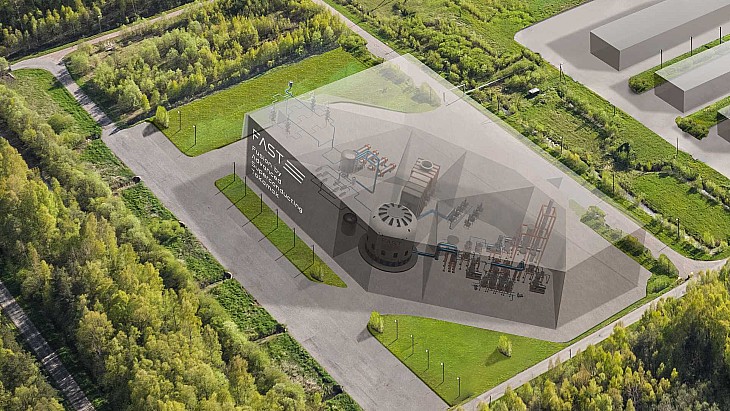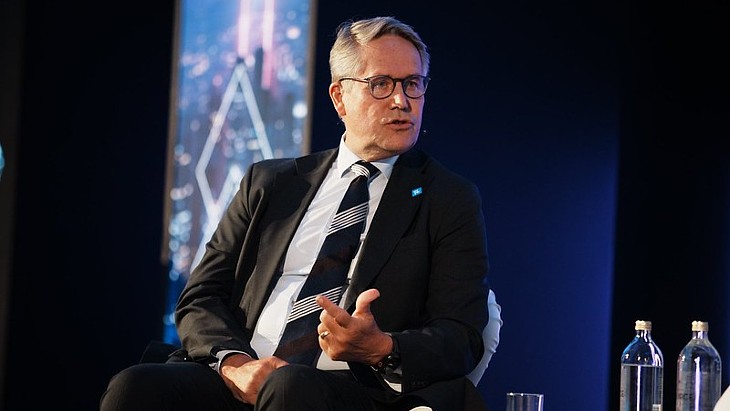Hungary's plan to build two additional reactors at Paks has reached an important milestone with the receipt of an environmental licence for the project, Attila Aszódi, the government commissioner responsible for Paks II, told World Nuclear News yesterday.
The licence was issued by the Government Office of Baranya County, Aszódi said by email. Attainment of the licence confirms the project meets the environmental requirements of both Hungary and those of the European Union, he said.
The procedure was started on 19 December 2014 when the project company MVM Paks II Ltd submitted a more than 2000-page environmental impact assessment report, Aszódi said. During this process, the document was extended "due to different procedural acts", he said.
The complete information submitted for the licence was made available to the public throughout the process - at the environmental authority and relevant local governments, as well as on the websites of the Government Office of Baranya County, the Ministry of Agriculture and the Paks II project company, Aszódi said.
"In accordance with the relevant regulation, an international environmental impact assessment procedure was also carried out as part of the environmental impact assessment procedure of the Paks II project," he added.
Other authorities also evaluated the document, including the nuclear safety authority and water administration authority, he said.
The environmental authority held a number of public hearings last year - in Paks on 7 May and, later, in nine other locations in seven countries - Austria, Croatia, Germany, Romania, Serbia, Slovenia and Ukraine. Expert consultations were also held in countries that participated in the licencing process, he said.
"On 16 June this year, the Paks II project company informed the environmental authority about the specification of certain technical solutions," Aszódi said. "This information - like all other environmental information - was also sent to the countries participating in the procedure so that the comments of their public as well as Hungary's could be taken into account during the final decision making by the Hungarian environmental authority," he added.
The consultation phase of the international environmental impact assessment procedure was finally completed on 26 August.
Aszódi said: "Issuance of the environmental licence means that a very long and thorough procedure has been completed and a professional decision has been made. The licence issued [yesterday] is a crucial step in the licensing of the Paks II project."
He stressed that the extensive and transparent process and the inclusion of Hungarian and foreign public insight into the project demonstrated that the environmental decision was based on good practice in the interests of the "entire international community".
Aszódi said two weeks ago that the European Commission is expected to issue a decision soon on Paks II. The European Commission has been examining until recently two matters related to Paks II - procurement and whether funding of the project amounts to state aid.
The submission of the site licence application for the new Russian-built VVER-1200 units to Hungary's regulator is scheduled for the end of October, Aszódi told delegates at the World Nuclear Association's 41st Annual Symposium in London on 16 September.
Site investigation work for the project has been completed and documentation for that is being prepared. "We hope to submit the site licence application at the end of October with the target of obtaining the licence in the spring of next year," he said.
Once the site and environmental licences have been issued, the construction licence application can be prepared, he added.
Construction work would start in 2018, but when exactly depends, he said, on the conditions the European Commission attaches to its approval of the project. Hungary has had the Commission's approval to spend the last two years working on licensing, he added.
Paks currently comprises four Russian-supplied VVER-440 pressurized water reactors, which started up between 1982 and 1987. An inter-governmental agreement signed in early 2014 would see Russian enterprises and their international sub-contractors supply two VVER-1200 reactors at Paks, as well as a Russian state loan of up to €10.0 billion ($11.2 billion) to finance 80% of the project.
Researched and written
by World Nuclear News




_82983.jpg)
_34792.jpg)
_16403_79272.jpg)


_76087_55556.jpg)



